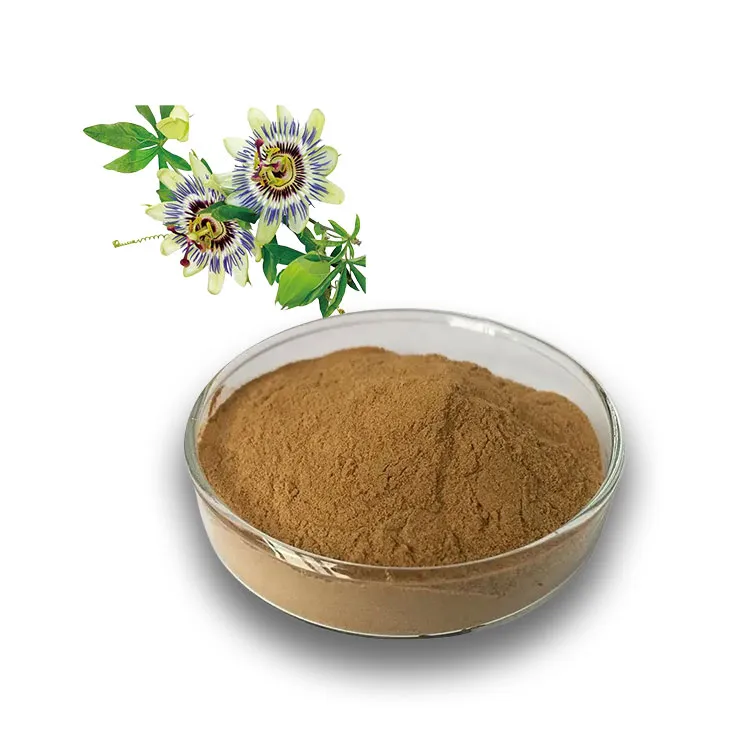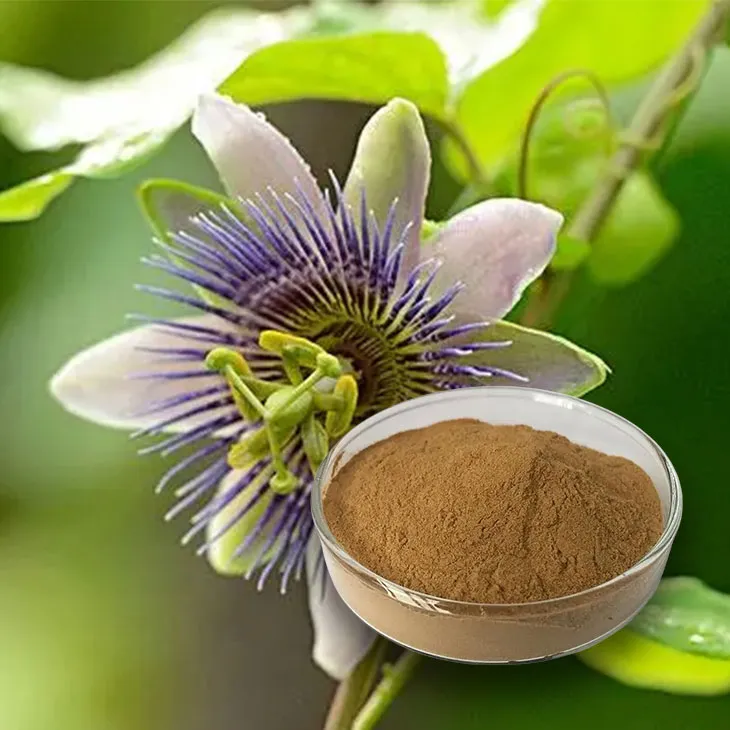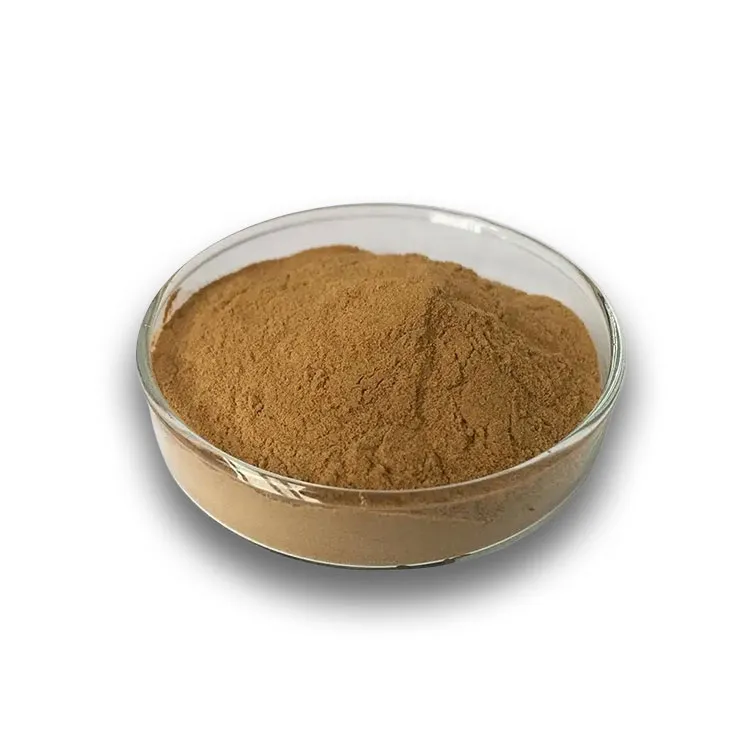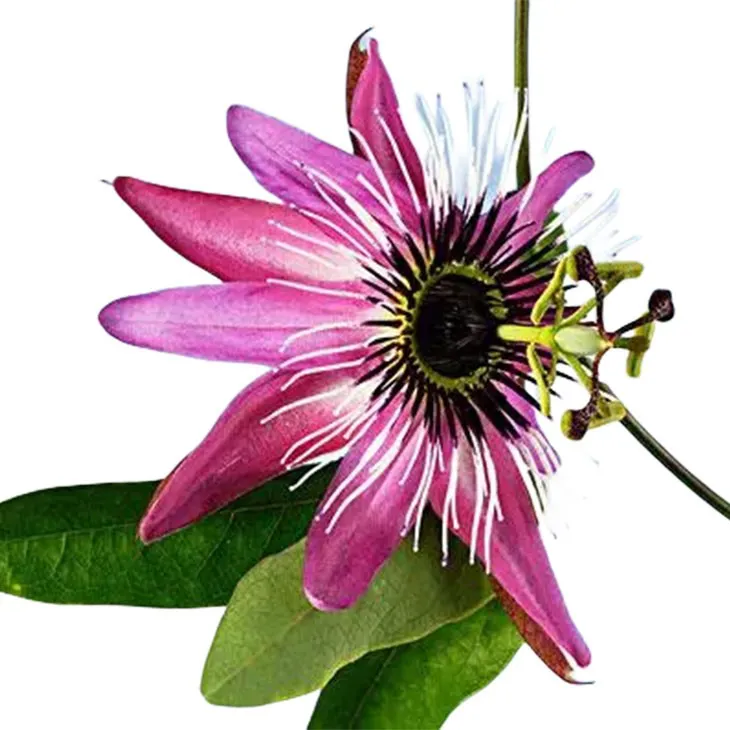- 0086-571-85302990
- sales@greenskybio.com
Optimal Bioavailability of Passionflower Extract.
2024-11-30

1. Introduction
Passionflower Extract has been widely recognized for its potential health benefits, including its anxiolytic, sedative, and anti - inflammatory properties. However, to fully realize these benefits in a practical sense, optimal bioavailability is crucial. Bioavailability refers to the proportion of a substance that enters the circulation and is able to have an active effect on the target tissues. Understanding the factors that influence the bioavailability of Passionflower Extract can help in formulating more effective products for various health - related applications.

2. Chemical Composition of Passionflower Extract
2.1 Flavonoids
Passionflower extract contains a rich variety of flavonoids such as apigenin, luteolin, and Quercetin. These flavonoids play an important role in determining the bioavailability of the extract. Flavonoids can influence the absorption, distribution, metabolism, and excretion (ADME) processes in the body. For example, they can interact with transporters in the intestinal epithelium, affecting the absorption of the extract into the bloodstream. Some flavonoids may also be substrates for certain enzymes in the liver, which can impact the metabolism of other components in the passionflower extract.
2.2 Alkaloids
Harman alkaloids are also present in passionflower extract. These alkaloids can have an impact on the central nervous system, but their bioavailability characteristics are complex. They may interact with neurotransmitter receptors in the brain, and their absorption and distribution may be affected by factors such as the pH of the gastrointestinal tract. The presence of alkaloids in the extract can also potentially influence the overall bioavailability of the extract by affecting the solubility and stability of other components.
3. Impact of Co - administered Substances
3.1 Food and Beverages
When passionflower extract is consumed with certain foods or beverages, its bioavailability can be altered. For instance, consuming passionflower extract with a high - fat meal may increase its absorption. This is because lipids can enhance the solubility of some of the hydrophobic components in the extract, facilitating their passage through the intestinal membrane. On the other hand, consuming it with a large amount of caffeine - containing beverages may have an adverse effect. Caffeine is a stimulant that can interfere with the sedative effects of passionflower extract and may also potentially affect its absorption and metabolism through mechanisms such as enzyme induction.
3.2 Pharmaceuticals
Co - administration with certain pharmaceuticals is another important consideration. Some drugs may interact with passionflower extract at the level of drug transporters or metabolizing enzymes. For example, if a person is taking a medication that is metabolized by cytochrome P450 enzymes, and passionflower extract also affects these enzymes, it can lead to altered drug levels in the body. This can either reduce the effectiveness of the drug or increase the risk of adverse effects. Additionally, drugs that have sedative effects on their own may potentiate the sedative effects of passionflower extract when taken together, which may require careful dosage adjustment.
4. Role of Gut Microbiota
4.1 Metabolism by Gut Bacteria
The gut microbiota plays a significant role in the bioavailability of passionflower extract. Certain bacteria in the gut can metabolize components of the extract. For example, some bacteria may break down complex flavonoids into simpler metabolites that are more easily absorbed. This metabolic transformation can increase the bioavailability of the flavonoids. However, the composition of the gut microbiota can vary greatly between individuals, which means that the bioavailability of passionflower extract may also differ among different people.
4.2 Influence on Intestinal Barrier Function
A healthy gut microbiota helps maintain the integrity of the intestinal barrier. A compromised intestinal barrier can lead to increased permeability, which may affect the absorption of passionflower extract. Bacteria in the gut can secrete factors that strengthen the tight junctions between intestinal epithelial cells, ensuring proper absorption of nutrients and other substances like passionflower extract. If the gut microbiota is disrupted, for example, due to antibiotic use or a poor diet, it can lead to decreased bioavailability of the extract.
5. Strategies to Improve Bioavailability
5.1 Formulation Optimization
- Nanoparticle - based formulations: One approach to improve the bioavailability of passionflower extract is through the use of nanoparticle - based formulations. Nanoparticles can protect the active components of the extract from degradation in the gastrointestinal tract and can also enhance their absorption. For example, encapsulating the extract in lipid - based nanoparticles can increase the solubility of hydrophobic components and promote their uptake by intestinal cells. - Prodrug design: Another strategy is the design of prodrugs. By chemically modifying the components of passionflower extract to form prodrugs, their pharmacokinetic properties can be improved. Prodrugs are inactive compounds that are converted into the active form in the body. This can be designed in such a way that the prodrug has better absorption characteristics and is then metabolized to release the active components of the extract at the desired site in the body.
5.2 Dietary Modifications
- Prebiotic and probiotic supplementation: Since the gut microbiota plays a crucial role in bioavailability, supplementing with prebiotics and probiotics can be beneficial. Prebiotics can nourish beneficial gut bacteria, promoting their growth and activity. Probiotics, on the other hand, can directly introduce beneficial bacteria into the gut. By improving the composition of the gut microbiota, the metabolism and absorption of passionflower extract can be enhanced. - Balanced diet: Maintaining a balanced diet is also important. A diet rich in fruits, vegetables, and whole grains can provide a favorable environment for the gut microbiota and can also help in optimizing the absorption of passionflower extract. For example, a diet high in fiber can promote regular bowel movements, which can prevent the build - up of substances that may interfere with the absorption of the extract.6. Conclusion
Optimal bioavailability of passionflower extract is a multi - faceted concept that involves considerations of its chemical composition, the impact of co - administered substances, and the role of gut microbiota. By understanding these factors, it is possible to develop strategies to improve the bioavailability of passionflower extract. This, in turn, can lead to more effective utilization of the extract for health - related applications, such as in the treatment of anxiety, insomnia, and inflammation. Continued research in this area is essential to fully unlock the potential of passionflower extract in promoting human health.
FAQ:
What are the main chemical components in passion flower extract relevant to bioavailability?
The passion flower extract contains various chemical components. Flavonoids are important ones, such as chrysin. These flavonoids can influence the bioavailability as they may interact with enzymes in the body. Additionally, alkaloids are also present. Their chemical structures and properties can affect how the extract is absorbed, distributed, metabolized, and excreted in the body, thus being crucial for bioavailability.
How can co - administered substances affect the bioavailability of passion flower extract?
Co - administered substances can have both positive and negative impacts on the bioavailability of passion flower extract. Some substances may enhance absorption. For example, certain vitamins or minerals can interact with the components of the extract at the absorption site in the intestine, increasing the uptake. However, other substances may compete for the same transport mechanisms or metabolic enzymes. Drugs, in particular, may interfere with the normal bioavailability processes of the passion flower extract if they are taken simultaneously.
What role does gut microbiota play in the bioavailability of passion flower extract?
The gut microbiota can play a significant role in the bioavailability of passion flower extract. These microorganisms can metabolize the components of the extract. Some bacteria may break down complex compounds into simpler forms that are more easily absorbed by the body. They can also modify the chemical structure of the extract's components, which may either enhance or reduce their bioavailability. For instance, certain gut bacteria can produce enzymes that are involved in the transformation of flavonoids in the passion flower extract.
Are there any methods to improve the bioavailability of passion flower extract?
Yes, there are several methods. One way is through formulation. For example, encapsulating the extract can protect it from degradation in the stomach and enhance its release in the intestine where absorption is more likely to occur. Another method is to combine it with substances that are known to enhance absorption, as long as there are no adverse interactions. Additionally, maintaining a healthy gut microbiota through diet and probiotic use may also potentially improve the bioavailability of the passion flower extract.
How is the bioavailability of passion flower extract measured?
The bioavailability of passion flower extract can be measured through various techniques. Pharmacokinetic studies are commonly used. This involves measuring the concentration of the extract's components in the blood or other biological fluids over time after administration. Another approach is to study the excretion of the extract and its metabolites in urine or feces. By analyzing these parameters, scientists can determine how much of the extract is absorbed, how quickly it is metabolized, and how long it remains in the body, which gives an indication of its bioavailability.
Related literature
- Bioavailability of Phytochemicals from Passion Flower (Passiflora incarnata L.): A Review"
- "The Influence of Passion Flower Extract on Pharmacokinetic Parameters: Insights into Bioavailability"
- "Gut Microbiota and the Bioavailability of Herbal Extracts: The Case of Passion Flower"
- ▶ Hesperidin
- ▶ citrus bioflavonoids
- ▶ plant extract
- ▶ lycopene
- ▶ Diosmin
- ▶ Grape seed extract
- ▶ Sea buckthorn Juice Powder
- ▶ Beetroot powder
- ▶ Hops Extract
- ▶ Artichoke Extract
- ▶ Reishi mushroom extract
- ▶ Astaxanthin
- ▶ Green Tea Extract
- ▶ Curcumin Extract
- ▶ Horse Chestnut Extract
- ▶ Other Problems
- ▶ Boswellia Serrata Extract
- ▶ Resveratrol Extract
- ▶ Marigold Extract
- ▶ Grape Leaf Extract
- ▶ blog3
- ▶ blog4
-
Wholesale L - Tyrosine Suppliers.
2024-11-30
-
The best milk thistle extract in 2024.
2024-11-30
-
High - quality kidney bean extract products.
2024-11-30
-
The best aged garlic extract on the market.
2024-11-30
-
How to make powder with L - arginine.
2024-11-30
-
Cocoa Extract
2024-11-30
-
Selenium yeast
2024-11-30
-
Ivy Extract
2024-11-30
-
Passionflower Extract
2024-11-30
-
Wheat Germ Extract
2024-11-30
-
Almond Extract Powder
2024-11-30
-
Beetroot juice Powder
2024-11-30
-
Black Pepper Extract
2024-11-30
-
Tinospora cordifolia extract
2024-11-30
-
Bamboo Leaf extract
2024-11-30




















